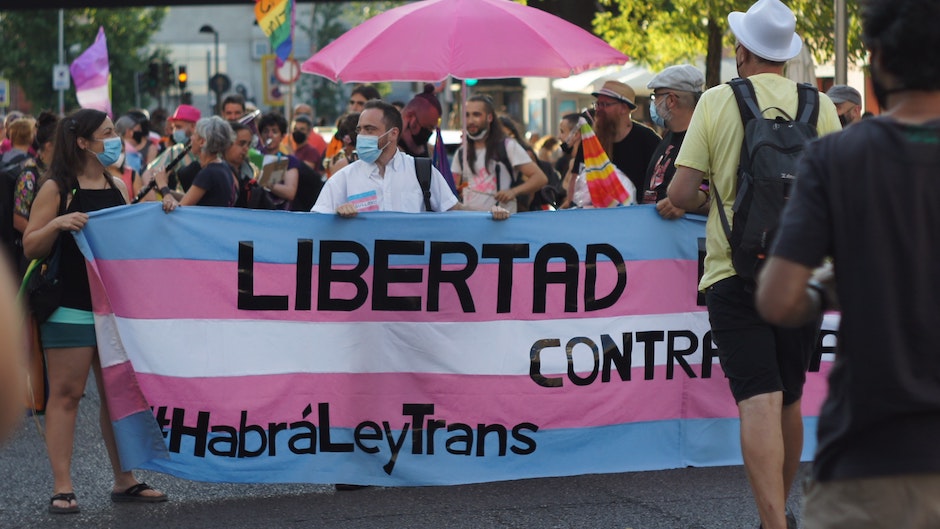Spanish Council of the Judiciary warns ‘trans law’ violates rights of parents, women and children
A report by the judicial body highlights the errors and dangers of the law, and it rejects the ban on conversion therapies.
Protestante Digital · MADRID · 22 APRIL 2022 · 13:30 CET

The Spanish General Council of the Judiciary's (CGPJ) report on the transgender and LGTBI draft law warns of the legal and social dangers of the text presented by the government.
The CGPJ states that the regulation could violate women's rights; proposes to raise to 18 the age limit for gender rectification in the register, preventing minors from making this decision; warns that the law would have negative consequences in areas such as sport or access to some professions; and disagrees with the ban of conversion therapies.
Consent of minors
The rule proposed by the government seeks to allow minors to decide to change the sex of their birth from the age of 12, without submitting any medical or psychological report.
Until the age of 16, according to the government's proposal, the minor should have parental consent or, in case of divergence with the parents' opinion, administrative support. The regulation also proposed that this step could be taken without parental consent from the age of 16 onwards.
The highest judicial body, by a majority, asked that the age limit for a person to apply for sex reassignment in the civil registry be raised to 18 years.
“This would extend to the age of 18 the procedure foreseen in the draft bill for minors between 12 and 14 years of age, which requires judicial approval, after completing a voluntary jurisdiction file and proving the necessary maturity and the stable will to proceed”. the statement released by the CGPJ points out.
Conversion therapies
The text proposed the ban of so-called “conversion therapies”. The CGPJ, by unanimity, expressed its disagreement with this prohibition.
“There is no prohibition in situations where there is the consent of the person concerned”, said the judicial body.
Gender self-determination risks
The report also highlights the risks of gender self-determination, especially for women, both in terms of the development of safe spaces and for sex-segregated areas of competence, such as sport or access to some professional profiles.
Three council members also warn that the process of gender reassignment cannot be subject to a “mere declaration of will”. “It is not enough; accreditation of disagreement with the sex mentioned in the birth registration must be required, by the means that the legislator may consider proportionate and appropriate”, they state.
Furthermore, the CGPJ unanimously agreed that the text of the rule should not refer to “non-transgender women”, but that it should be replaced by the word “women".
Other fundamental rights threatened
Four other council members warn that the draft law affects fundamental rights, “such as ideological and religious freedom, freedom of expression and the right of parents to ensure that their children receive religious and moral education in accordance with their own convictions”.
The definition of “direct discrimination” of the law was also questioned. The judicial body underlines that “it does not comply with the principles of criminal legality and legal security as it includes situations that have not occurred”.
Government reaction
The Minister of Equality, Irene Montero, has criticised the judges on Twitter. “No surprise”, says the minister, who hopes to keep the text and pass it.
“Our roadmap is clear: to urgently pass this law so that it reaches Parliament during this term of sessions. The rights of trans and LGTBI people will be law”, she wrote.
Podemos, Irene Montero's party, has been even harsher, stating that “the problem is not the law, but the lowlife” in another tweet.
A controversial law
The LGTBI and transgender law has been controversial, even leading to confrontation within the government between several ministries,which provoked the dismissal of the vice-president Carmen Calvo.
It has also been strongly criticised by feminist groups, as well as by a wide range of professional sectors.
This tension has become more evident in recent months. A clear example was the Women's Day demonstrations, where many feminist groups rejected the call supported by the Ministry of Equality.
In the evangelical sphere, the Spanish Evangelical Alliance (AEE) expressed in November 2020 its opposition to a law that “puts women and children at risk”, with a proposal that ignores science and medicine, and “creates a society with different levels of rights”.
The president of the Women and Society group of the AEE, Asun Quintana, shared in a conference-colloquium in March 2021 the problems that this regulation could cause on a social level if it passed.
“We are not concerned about the draft law just because it opposes our Christian worldview, but because it threatens democratic freedoms, restricts freedom of conscience and freedom of speech, and invades the competences of civil society and the family”, pointed out Quintana.
Published in: Evangelical Focus - europe - Spanish Council of the Judiciary warns ‘trans law’ violates rights of parents, women and children
